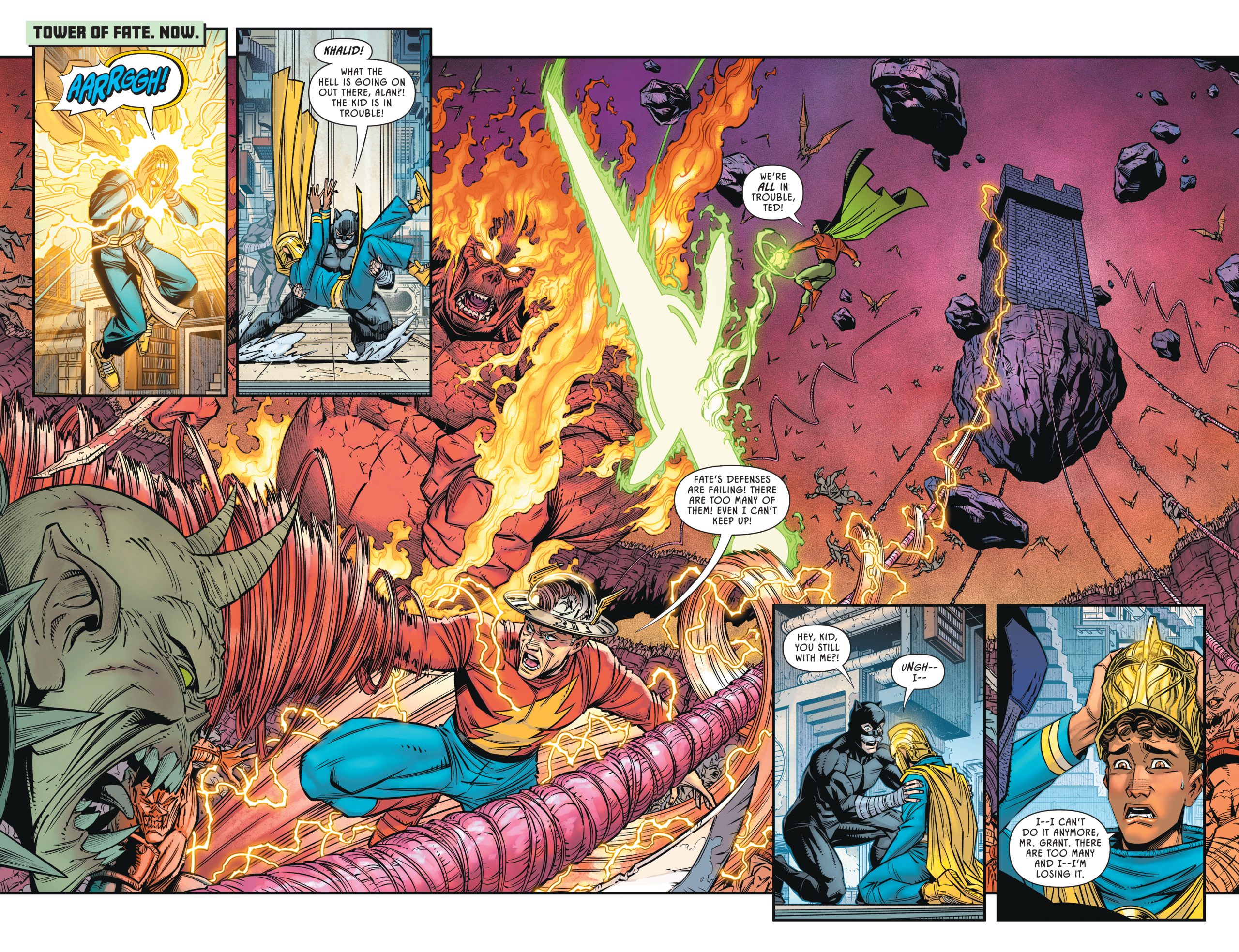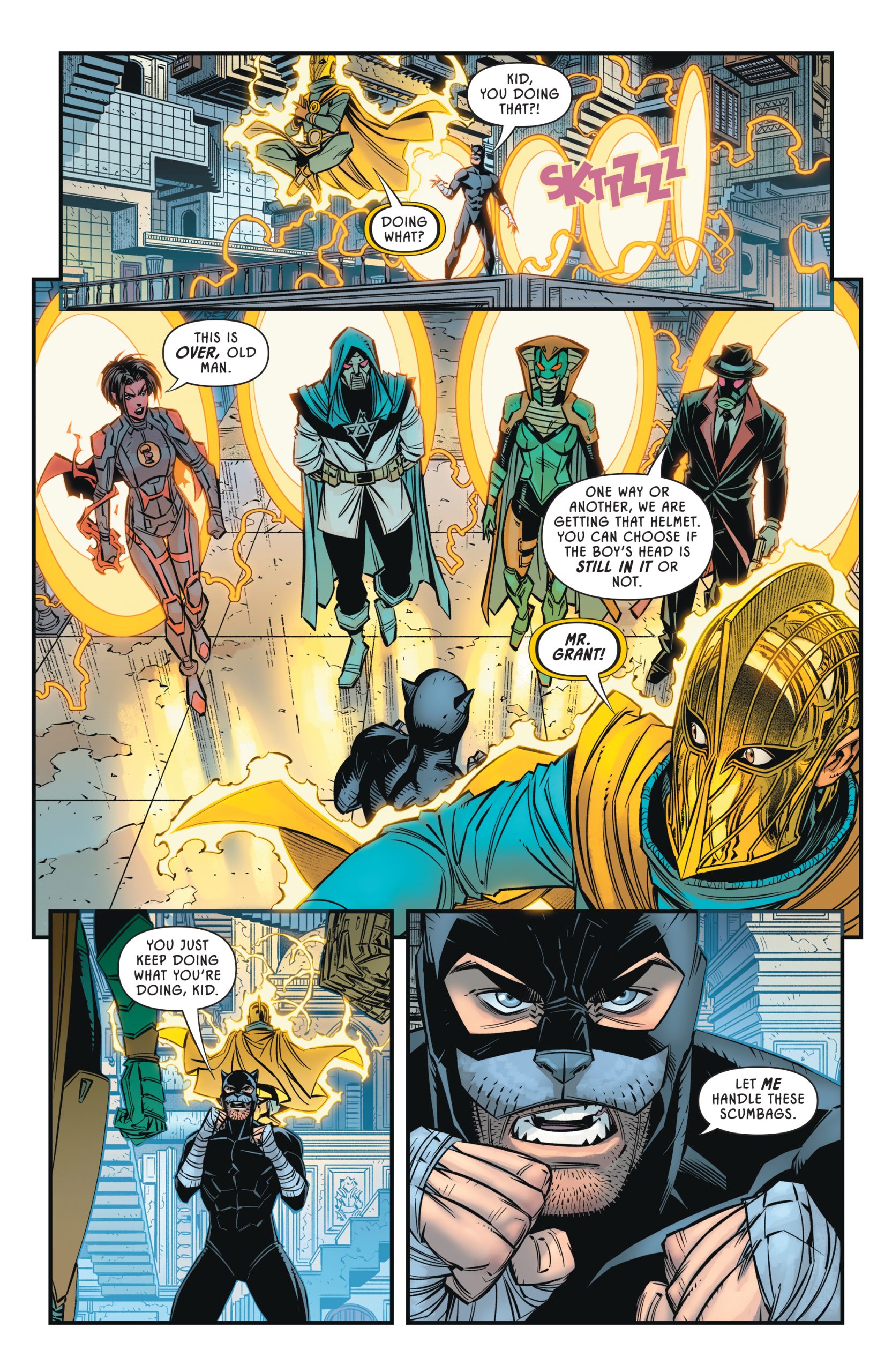Review: JSA #6 [Editor’s Note: This review may contain spoilers]
[Editor’s Note: This review may contain spoilers]
Writer: Jeff Lemire
Art: Diego Olortegui with Joey Vazquez
Colors: Luis Guerrero
Letters: Steve Wands
Reviewed by: Matthew B. Lloyd
Summary
The Old Guard of the JSA square off against the Injustice Society and it doesn’t end well. Meanwhile, the Younger Generation have their own problems as Yolanda goes too far.
Positives
At times JSA #6 feels like a Bronze Age issue of All-Star Comics. Both have a lot of moving pieces, A plot, B plot, C plot, a large cast of characters and a variety of locales. The storytelling from Olortegui is solid and the stakes seem quite high.

Negatives
It’s hard when one of your favorite sets of characters just isn’t doing it for you. That’s where I am with this JSA series. There’s still that feeling that much of this is a rehash of the 2000’s era of the title by Geoff Johns. It has that “stuck” feeling like nothings moved forward since then and Lemire is just telling the same story over again with some different details, but all the same character beats.
The surprise death in this issue, really isn’t much of a surprise. It was a mistake to tell us someone was going to die, and it’s been telegraphed by the emotional beats of the previous issues- either Khalid or Ted Grant. Well…it’s not executed that well in the issue itself due to the details above. There’s no emotional beat to it because it’s so obvious. We should care!

It also may be that there hasn’t been enough emotional connection in the previous five issues to give the reader an immediate reader to care. Any connection is going to be based on readers’ previous experience and not from what’s transpired so far in this series.
Yolanda Montez kills a henchmen with a vicious claw to the throat. This is a moment that goes back to the rehash of the 2000’s series. Albert Rothstein crossed the line back then and this seems to serve the same purpose. Jade promises she’ll have to answer for it, but will she?

Negatives Cont’d
Yolanda says she just lost control when she saw what appeared to have happened to Beth Chapel. This is followed by Jessie Quick telling Rick that she just hasn’t felt right, that she’s felt empty. Because the younger set of members have been at each other since issue #1, the idea that this may be manipulation doesn’t quite feel right, despite it feeling that’s what’s being suggested. Psycho-Pirate is a longtime JSA foe and would fit right in, although we know that Johnny Sorrow is already masquerading as Obsidian, so it’s hard to believe that two JSAers are being impersonated. Now the presence of the Psycho-Pirate recalls a storyline from the aforementioned All-Star Comics in the Bronze Age in which he was a key figure in manipulating members of the JSA including the retired Golden Age Batman.

One wonders if Lemire is trying to connect thematically to these stories. It’s a great idea to try and do this, but the actual execution isn’t there. Something is missing. It feels like it’s missing the heart. Stargirl provided the heart in the 2000’s and Power Girl provided the heart in the seventies. No characters have that in this series. Jay Garrick is the closest, but he’s getting little to no page time. Everyone seems angry, depressed or emotionally overwhelmed. There’s no balance here.
Verdict
Unfortunately, the script for JSA #6 seems phoned in. Aspects that should have huge emotional impact feel lifeless and empty. Lemire is a better writer than this and it’s possible to tell what he’s trying to do. Despite Olortegui doing a solid job on the art, the heart of the JSA is missing and it may not be in Lemire’s wheelhouse to provide.
